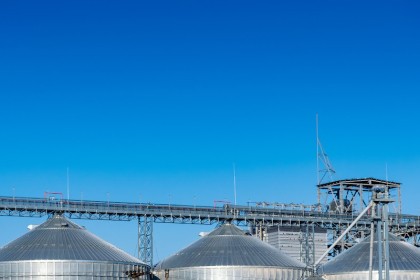
Government Grants For Renewable Energy
Until recently, the agricultural sector of South Africa had a lower prescribed minimum wage than the National Minimum Wage (NMW), which was gradually increased to align with the National Minimum Wage. Now, agricultural workers qualify for the national minimum wage rate of R25.42 per hour, which means that farmers have experienced a massive increase in labour costs.
Farmers in South Africa must also contend with rising fuel prices, interest rate hikes, and the growing cost of living crisis, not to mention the requirements of the European Controlled Export and Supply of Agricultural Resources (CESAR) legislation if they wish to export produce. This added to the Department of Labour’s increased efforts to transition away from foreign labour to help address local unemployment, puts farmers under significant pressure.
The light at the end of this dark tunnel is the announcement of substantial grants by the government to encourage the agricultural sector to move toward the use of renewable energy. This is an opportunity for farmers to offset costs, take advantage of energy bill reductions, and move toward a more sustainable future.
The pressure is mounting
Apart from the challenges South Africans are currently facing in terms of the energy crisis, higher fuel prices, higher cost of living, economic instability, and the lingering after-effects of the Covid-19 pandemic, the agricultural sector is under pressure from several other areas. The NMWA mandates that all farm workers must receive the same minimum wage as other sectors, which previously has not been the case, and the additional burden this is placing on farmers is significant, often running to millions of Rands a month. In addition, the Government is cracking down on the use of foreign labourers to ensure local economic growth and reduce rampant unemployment.
At the same time, CESAR enforces both elements from a different angle – if farmers wish to export products to Europe, which is one of South Africa’s largest export markets, they must adhere to ethical and sustainable farming practices, including applicable minimum wage and labour laws, as well as decent working conditions and fair employment. CESAR aims to eradicate exploitation in farming, which ties in with the Government’s Department of Labour aims as well. Failure to comply with CESAR requirements will result in a loss of accreditation, which in turn means no exports to Europe and a significant negative impact on farmers’ income.
Some hope for relief
The push toward sustainable energy is gaining momentum in South Africa as the energy crisis continues to worsen, and the government is aiming to help farmers in this regard. Recently, Electricity Minister Korinthos Ramgopal announced an for investment in alternative energy solutions for the agricultural sector, which has been severely hit by load shedding. Farmers will be able to access a blended facility that is part grant and part loan, of amounts between R500,000 and R1.5 million depending on the size and scale of their operations, that will enable them to implement renewable energy solutions.
This is a significant opportunity for farmers to offset the rising costs in other areas and subsidise the cost of transitioning their labour away from foreign workers while benefiting from the reduced costs and increased sustainability of renewable energy solutions. At the same time, they will be able to leverage improved margins without increasing product cost, maintain CESAR accreditation, alleviate unemployment, and develop long-term, sustainable operations.
People Solutions Partners in Your Corner
Applications for the grants will be open soon, but the process may be complex and take significant time and effort to complete correctly and qualify. A turnkey employment solutions provider can offer assistance to farmers when it comes to applying for grants and compiling the requirements for the process. In addition, they can assist in the transition to local labour with the sourcing and supply of vetted, skilled, and experienced labourers and workers, ensuring that NMW requirements are met, that all other applicable legislation is complied with, and that all criteria for CESAR accreditation remain in place. They can also offer additional benefits like healthcare, medical insurance, funeral cover, human resources, payroll and admin, lessening the burden on farmers as they navigate this challenging time.












